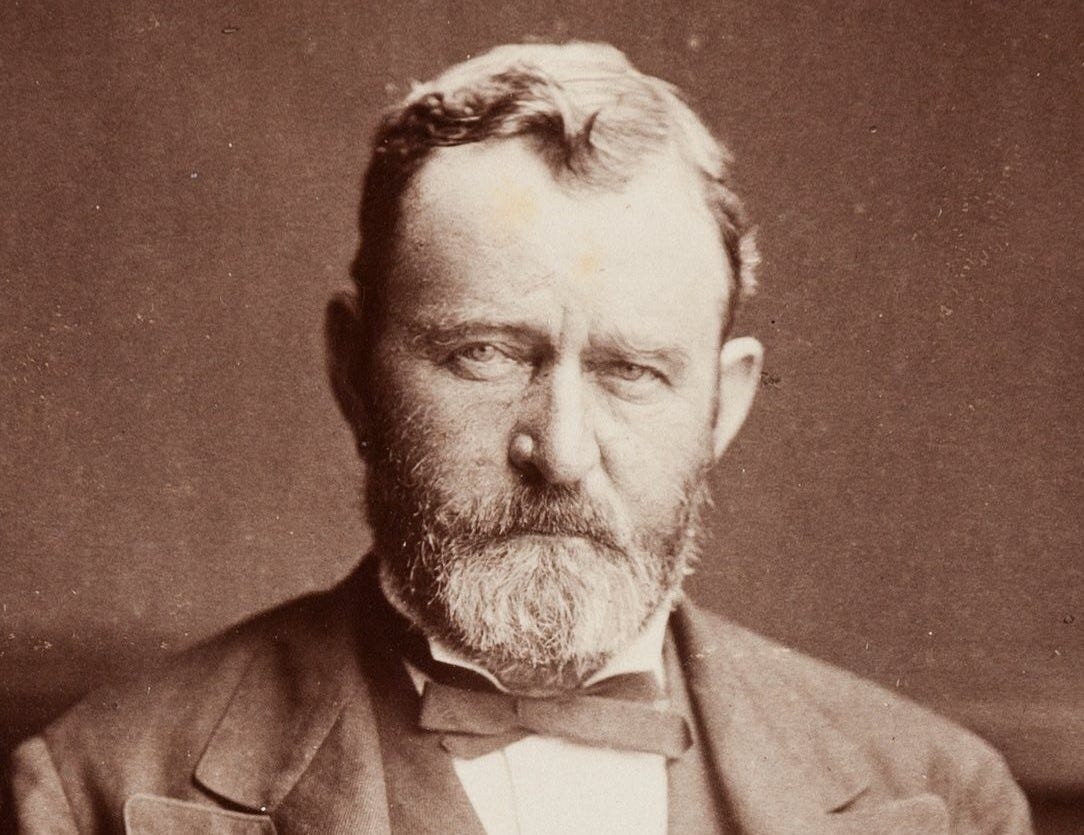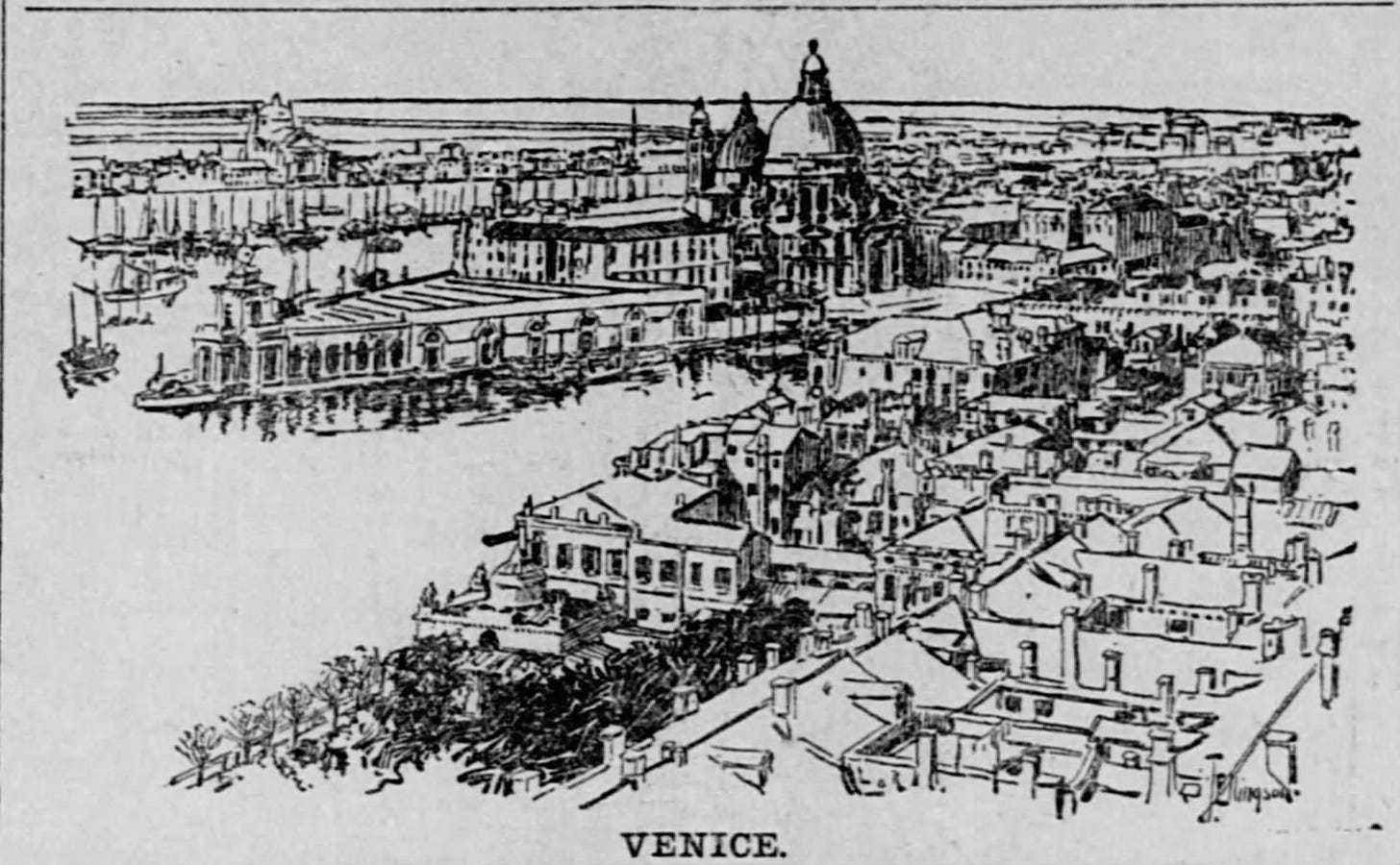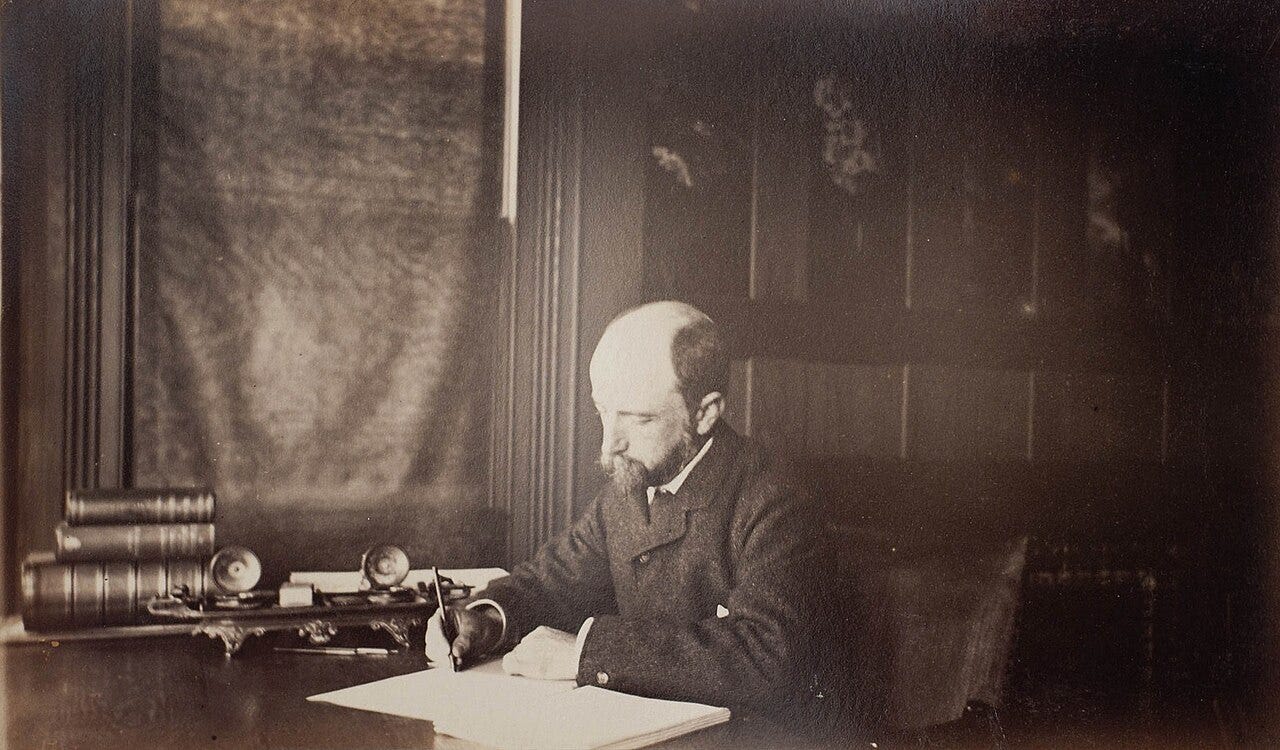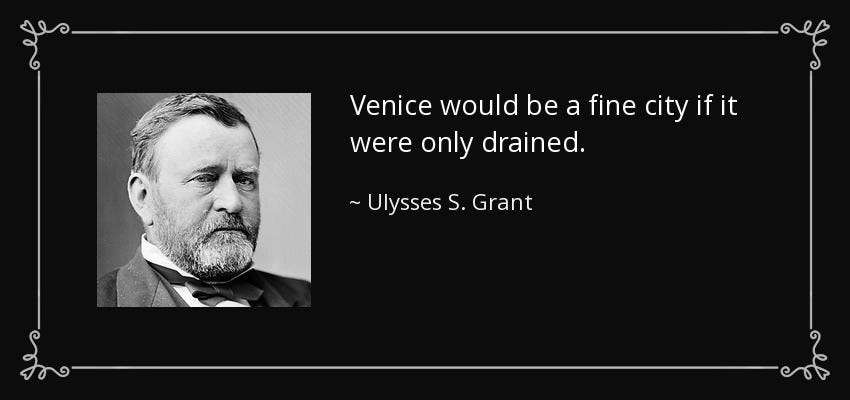Ulysses S. Grant in Venice: To Drain or not to Drain
In his autobiography The Education of Henry Adams, the author claimed Ulysses Grant said, “Venice would be a fine city if it were only drained.” It was a snide, condescending, and pithy insult that conveys more than its brief eleven words. It implies Grant is too uncultured, ignorant, and boorish to appreciate the majesty of the Renaissance city. Adams self-published his autobiography in 1907 (commercial publication came after his death in 1918), twenty-nine years after Grant was in Venice and twenty-two years after Grant’s death. The line has been referenced, unquestioned, like a cudgel to bash Grant ever since, including most recently in C. W. Goodyear’s otherwise excellent President Garfield: From Radical to Unifier.[i]
Grant visited Venice in April 1878, almost a year into his 29-month world tour. Grant, Julia, their daughter Nellie, and the rest of their band of travelers arrived late on April 22 or early April 23 from Florence. The visit was thankfully free of official ceremony that burdened him for most of his journey, allowing Grant to wander the narrow streets and visit sites that modern tourists would find familiar. He fed pigeons in the Piazza di San Marco, toured the Basilica di San Marco and Doge’s Palace. He walked across the Bridge of Sighs and the Rialto Bridge and took the obligatory Gondola ride. Grant also saw the Arsenal which stored the armaments used to fight the Turks and Moors in years past. They departed several days later for Milan.
There is little mention of Venice in Grant’s papers. Grant did not start his travel diary until January 1879, so left no firsthand impressions. Julia, however, dedicated a full page to their stay in Venice. She makes no reference to Grant’s alleged comment, but instead described a visit to an Armenian monastery where Lord Byron wrote Childe Harold's Pilgrimage. While Grant preferred to travel incognito, the proud wife could not keep his secret and introduced her famous husband to their tour guide. An annoyed Grant gently scolded, “Now you have destroyed the day. We shall have no more comfort.”[ii]
American reporters covered only sparse details including a visit from the mayor. Grant reportedly “expressed great satisfaction on visiting Venice and warmly thanked the mayor for the cordial expressions.”[iii] Grant’s companion and chronicler from the New York Herald, John Russell Young, wrote a verbose two-volume book about the trip, but unfortunately offered few details of their stay in Venice. In Ron Chernow’s opus, Grant, he offered the possibility Grant may have “meant that the canals should be cleansed of sewage.” If Grant did say it - and that’s a giant “if” - Young supports Chernow’s assertion as he noted, “If any reliance can be placed in books of sanitary science, Venice is not the healthiest city in the world.”[iv]
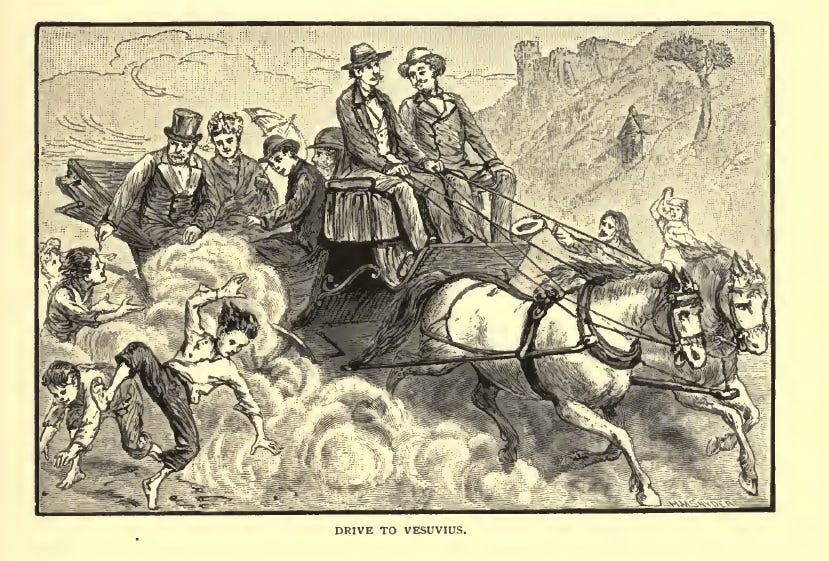
Together, Grant’s papers, accounts from fellow travelers, and newspaper articles offer no proof that Grant did say the comment. But neither do they provide evidence he didn’t say it.
That brings us back to Henry Adams. He did not provide a citation (few historians did in 1907) but rather used what modern reporters call an “anonymous source” when he stated Grant made the remark “to a particularly bright young woman.” While we can speculate about the identity of the mystery female, it’s unlikely she was with Grant in Venice. Perhaps they spoke after his return to America. Or maybe she was a figment of Henry Adams’ imagination. Just as he created distance from his own assertions by referring to himself in the third person (“Adams did not feel Grant as a hostile force . . . he saw only an uncertain one”), he could have also created an additional layer as a useful device to further evade accountability.
Given the possibility Adams fabricated Grant’s comments, we must consider why he would do so. While some historians strive for political agnosticism, Adams wore his opinions on his sleeve. It is not an understatement to say he thought little of Grant. In another passage of The Education, he called Grant “pre-intellectual, archaic, and would have seemed so even to the cave-dwellers.”[v] In private letters, he was less oblique: “I have always considered that Grant wrecked my own life, and the last hope or chance of lifting society back to a reasonably high plane.” Brooks Simpson explains Adams held Grant singularly responsible for his failure to obtain political influence like his famous ancestors.[vi] Adams found Grant guilty of federal overreach in protecting freedman’s rights including using the military to crush the Ku Klux Klan who assaulted and murdered thousands of African Americans.[vii] In The Last American Aristocrat: The Brilliant Life and Improbable Education of Henry Adams, David S. Brown laments, “Adams failed to appreciate the problem of race in America with any urgency, insight, or empathy.”[viii] Grant, on the other hand, did not fail.
Shortly after the Venice smear, Adams added, “The progress of evolution from President Washington to President Grant, was alone evidence enough to upset Darwin.” If we believe what he said about Venice without question, should we also assume Charles Darwin, who died five years after Grant left office, was so bothered that he was tempted to re-write On the Origin of Species? Obviously, Adams was not above exaggeration to make his point. David S. Brown noted Adams “was aiming for effect rather than accuracy” and had a “tendency to embellish, kick, and bite to make a point more pungent.”[ix]
To help explain why the alleged comment gained traction, let’s consider its timing. Grant’s reputation declined as the Lost Cause mythology began to surge after the 1915 debut of the film Birth of a Nation, which was three years before the commercial publication of Adams’ autobiography. In other words, at the time, disparaging remarks about the victorious general and staunch defender of civil rights and security for Black Americans would have found a receptive audience. Over the ensuing decades, Grant’s reputation continued its slide. Joan Waugh notes, “Grant’s star . . . has been eclipsed so completely for Americans since at least the mid-twentieth century.” Tellingly, the first reference to the Venice comment found in a newspaper appeared as a quip in the Minneapolis Morning Star Tribune in 1950 when Grant’s legacy wallowed in its nadir.[x]
Finally, we must consider if Grant did say it, he meant it as a joke. Anyone who spends time in the primary sources can appreciate Grant’s sense of humor. After watching fireworks in London that featured his emblazoned image, Grant joked, “I hardly understand the English people. They have burned me in effigy and cheered me.”[xi] Stumbling over rough cobblestones in Pompeii, Grant wisecracked, “Boss Tweed was not the first magistrate who failed to pave the roads.”[xii] In her memoirs, Julia lovingly recalled, “He was forever playing such practical jokes on poor me.”[xiii] “Venice would be a fine city if it was drained” would have fit nicely into Grant’s comedic repertoire. And despite his unquestioned devotion for Julia, what older man doesn’t like to get a laugh out of “a particularly bright young woman?”
History 101 teaches us to scrutinize sources, assess author bias, and investigate the primary sources, or lack thereof, used in secondary sources. For over a century, Henry Adams damning insult has been unquestioningly accepted as immutable fact. But I contend, unless corroborating evidence surfaces, historians and laymen alike should cease and desist from giving Adams’s reckless quote credibility.
This article was originally published in the Grant Monument Association newsletter (Spring 2024)
Louis L. Picone is the award-winning author of several books including Grant's Tomb: The Epic Death of Ulysses S. Grant and the Making of an American Pantheon. He holds a Masters in History and also teaches American history at William Paterson University. Louis is a member of the Authors Guild, Mensa International, and the American Historical Association. He is also a trustee on the board of the Grover Cleveland Birthplace Memorial Association in Caldwell, New Jersey. For more information about Louis visit www.LouisPicone.com, and also Facebook, Instagram, Twitter, LinkedIn, Academia.edu,. and Substack.
[i] “Venice, the former president opined, would be pretty if only the streets were drained,” C.W. Goodyear, President Garfield: From Radical to Unifier, (New York: Simon & Schuster, 2023), 337.
[ii] Julia Dent Grant, John Y. Simon, ed., The Personal Memoirs of Julia Dent Grant (Mrs. Ulysses S. Grant), (Carbondale: Southern Illinois University Press, 1975), 243.
[iii] “Italy Gen. Grant,” Burlington Free Press, April 25, 1878.
[iv] John Russell Young, Around the World with General Grant, 2 Volumes (New York: The American News Company, 1879), 1: 374.
[v] Henry Adams, The Education of Henry Adams, (Washington, 1907), 103. Goodyear echoes Adams’s remarks when he states, “behind Grant’s stony visage rested a similarly boulderlike mind - dull and heavy, possible prehistoric.” C.W. Goodyear, President Garfield: From Radical to Unifier, (New York: Simon & Schuster, 2023), 192.
[vi] Brooks D. Simpson, The Political Education of Henry Adams, (Columbia: University of South Carolina, 1996), ix.
[vii] David S. Brown, “The ‘Race’ Question: Where Henry Adams Lacked Moral Insight,” Literary Hub, published November 25, 2020. https://lithub.com/the-race-question-where-henry-adams-lacked-moral-insight.
[viii] David S. Brown, The Last American Aristocrat: The Brilliant Life and Improbable Education of Henry Adams, (New York: Scribner, 2020), 99.
[ix] Ibid, 41, 165.
[x] “Spring in Suburbia,” Minneapolis Morning Star Tribune, March 30, 1950.
[xi] Julia Dent Grant, Personal Memoirs, 205.
[xii] John Russell Young, Around the World with General Grant, 1:187.
[xiii] Julia Dent Grant, Personal Memoirs, 255.




